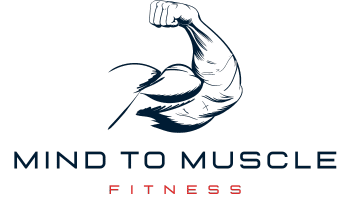
Unlock Your Potential with Muscle Memory Mastery
Every pro knows muscle memory boosts performance. But many don’t realize that our brain, with its 80 billion neurons, changes itself through neuroplasticity. This change helps us master new skills. Let me, your Muscle Building Mentor, show you how to use muscle memory to grow.
Muscle memory is not just for getting stronger; it’s a cognitive wonder. It turns hard work into easy, graceful tasks. With the right method, you can go from being awkward to smooth in arts or sports. Let’s dive into how muscle memory can boost your performance everywhere.
Key Takeaways
- Muscle memory is a cognitive process supported by the brain’s ability to adapt and form new neural pathways.
- Performance enhancement through muscle memory involves practice and repetition, supported by visualization and rest.
- Muscle memory techniques, when applied correctly, make daunting tasks become second nature.
- Rest and proper mental conditioning play a crucial role in consolidating muscle memory.
- Adopting a holistic approach to training, inclusive of diet and cognitive strategies, is essential for developing muscle memory.
The Magic of Muscle Memory Explained
Understanding how our brains and bodies work together can show us the benefits of muscle memory. It shows why “practice makes perfect” is true. We will explore how motor learning and strength recovery work with our nervous system.
Defining Muscle Memory: Beyond the Muscles
Muscle memory is more than just muscle strength. It’s about how our brain patterns work together, especially in our cerebellum. This small part of the brain is active and has over half of our brain’s neurons. By practicing regularly, we lock skills into our memory, showing why staying consistent is crucial.
The Brain and Nerves: The True Masters of Memorization
The split-brain concept shows our brain’s parts must work well together. The cerebellum lets us reach ‘Superfluidity,’ a state where we perform best without thinking hard. This allows our motor learning to grow while we barely notice.
Motor Learning and Strength Recovery: The Duo of Muscle Memory
When we stop training for a while, muscle memory helps us get strong again fast. Studies show trained people get muscle back faster than those untrained after a break. Our muscles keep changes, helping athletes get back to their best quicker than before.
| Statistic | Implication |
|---|---|
| Cerebellum Neuron Density | 50% of the brain’s neurons concentrated in only 10% of its volume |
| Practical Application | Consistent practice essential for long-term muscle memory |
| Epigenetic Muscle Memory | Over 850,000 DNA sites reveal the muscular impact of training at the DNA level |
| Detraining and Retraining | Faster muscle size and strength recovery after a training break |
| Myonuclei Persistence | Increased myonuclei presence in muscle fibers for long-term physical adaptations |
| Early Strength Training | Higher myonuclei in muscle cells from starting training early in life |
The cerebellum’s role is vital for both movement and skill keeping for athletes and performers. New studies show muscle memory is real and important. It proves strength recovery and motor learning are key to this amazing physical process.
Unlocking the Power of Muscle Memory
The journey to muscle memory development is like growing a garden. It needs patience, care, and steady work. Breaking tasks into small steps is key, just like planting seeds. This builds strong neural pathways for brain and body growth.
Think of your brain’s 80 billion neurons working together during muscle memory exercises. These aren’t just physical moves but also mental imagery. A study from Ohio University showed visualization helped maintain 25% more muscle strength. This proves the strong link between brain activity and muscle power.
To improve muscle memory retention, try STEAM-based family activities that take 15 minutes to an hour. This practice boosts neuroplasticity, enhancing the brain’s ability to adapt. It keeps pathways for muscle memory active, following the NGSS Standard MS-LS1-8 principle. This says sensory receptors react to stimuli, sending messages or storing them as memories.

- Start with simple exercises consistently and slowly progress to more complex sequences.
- Incorporate visualization to strengthen the neural connections involved in the physical activities you are practicing.
- Stay committed to the activity duration recommended for your skill level to foster neuroplasticity within your brain.
Anthony Kelly, known for quick hand movements, shows the power of muscle memory. His brain keeps connections strong, allowing high performance. His success is built on regular practice, a truth that applies to everyone.
Just like Joshua 1:8 in the Bible suggests meditation brings success, we should reflect on the skills we want to master. Combine muscle exercises with mental practice. With persistence, you’ll keep your skills sharp, even as brains age. This discipline makes hard tasks seem easy and achievable.
The Muscle Memory Blueprint: Techniques and Training
Starting muscle memory training can change your skills and how your brain works. This training is about learning how our minds and bodies work together at their best. We’ll explore the ways to build this strong connection.
Consistent Repetition: The Pathway to Efficiency
Being consistent is key for muscle memory. By doing the same exercises over and over, we start a process called myelination. This makes our brain’s messages faster and stronger. With enough practice, your brain gets better at controlling movements. This leads to skillful acts becoming almost automatic.
Visual Strategies: Imagining for Improvement
Muscle memory isn’t just about moving. Visual methods play a big part too. These methods get important brain areas involved. When you imagine doing something perfectly, you’re training your brain. This helps you move from trying hard to doing it without thinking. It’s a sneakily effective way to get better.
Complexity and Skill Development: Evolving Your Practice
To really improve, you need to make things more challenging. Our brains can adapt – that’s called neuroplasticity. This keeps your training fresh and helps you keep getting better. It’s all about pushing to remember and improve more and more.
| Phase | Neurological Change | Skill Development Significance |
|---|---|---|
| Learning | Formation of neural pathways | Foundation for skill acquisition |
| Repetition | Myelination, Basal ganglia engagement | Speed and efficiency of skill execution |
| Practice | Sensory feedback, Hippocampal activity | Feedback for precision and adjustment |
| Visual Strategy | Cognitive rehearsal without physical execution | Enhancement of motor skills through mental imagery |
| Complexity Introduction | Neuroplasticity and cognitive adaptability | Advanced skill refinement and prevention of learning plateaus |
Muscle memory exercises are crucial in your overall training plan. Make them a regular part of your day. This way, your skills won’t just stay the same – they’ll get better. Remember, it’s about more than doing something over and over. It’s about practicing with a purpose that fits your goals.
Optimizing Your Muscular Intelligence: Role of Rest and Recovery

The benefits of muscle memory can’t be ignored. They shine brightest when paired with enough rest. For those into physical training, the value of cognitive function in rest times is huge. Your brain uses this time to get better at skills without thinking.
Rest isn’t just a break. It’s a key phase for learning. While your body rests, your brain works hard. It fixes every practice in your memory. Strength and muscle matter for living longer. Let’s see what research says:
| Study | Focus | Outcome |
|---|---|---|
| Myers et al., 2002 | VO2max in Men | Average VO2max 793-801 |
| Rantanen et al., 2012 | Longevity Prediction | Muscle strength indicates longevity up to age 100 |
| Sayer & Kirkwood, 2015 | Aging Biomarkers | Grip strength correlated with mortality |
| Li et al., 2018 | Muscle Mass & Mortality | Strong link between muscle mass, strength, and reduced mortality |
| Srikanthan & Karlamangla, 2014 | Predictor of Longevity | Muscle mass index as longevity indicator |
These studies make it clear. Muscle strength is vital not just for being strong— it’s key to a long life. The data shows how rest and muscle memory training are very important. By balancing exercise with rest, your body benefits. Both now, and in many years to come.
Mastering the Art of Retention with Spaced Repetition
Learning and success are always changing. It’s key to use spaced repetition to keep memories strong. This method uses the spacing effect to help us remember things better over time.
Strategizing Learning Intervals for Maximum Memory Retention
Spaced repetition is more than just a strategy. It’s choosing to grow your knowledge for your whole life. Everyone who values education agrees that learning never stops. This is shown by 44 different quotes.
The Secret to Effective Learning Patterns
Fields like education, business, art, and philosophy know learning leads to success. People of all ages, from Michelangelo to Princess Ramirez, believe in learning forever. All quotes we looked at support this idea.
Boosting Your Recollection with Cognitive Techniques
Using methods like practice recall and teaching others helps with spaced repetition. These approaches improve how we remember and use information. They’re vital for facing new professional challenges.
| Cryptocurrency Exchange | Trading Options | Special Features | User Experience |
|---|---|---|---|
| Binance | Wide range | Low fees | Leading exchange |
| OKX | Derivatives | High liquidity | Popular for advanced features |
| Bybit | Various | Copy trading capabilities | Enables following successful traders |
| Coinbase | Common user’s choice | Emphasizes security and compliance | User-friendly platform |
| WhiteBIT | Diverse trading pairs | Rapid growth | Expanding in Europe |
| Bitforex | Competitive fees | Offers margin trading | Reputable in Asia |
| Bitmart | Altcoin trading | Staking opportunities | Popular among users |
| Gate | Supports various activities | Margin lending and borrowing | Suitable for advanced traders |
| MEXC | Fast matching engine | Deep liquidity | Preferred by experienced traders |
| Hotcoin | Emerging markets focus | User-friendly platform | Seamless trading experiences |
| Huobi (HTX) | Diverse trading options | High liquidity | Respected Asian exchange |
| Digifinex | Competitive fees | Growing user base | Emerging star in crypto world |
Using spaced repetition helps us unlock our memory’s full potential. It’s useful in many areas, from muscle memory to trading cryptocurrency. Being consistent with this method is the secret to keeping our minds sharp.
Mistakes to Avoid When Cultivating Muscle Memory
As a muscle building mentor, I stress the importance of dodging common errors. These errors can block your path to strong muscle memory. Recognizing them boosts your brain function and stops burnout.
Avoiding Overpractice and the Path to Balance
Remember, doing too much isn’t always good. Overworking yourself can make you tired mentally and physically. It doesn’t help when you’re trying to learn muscle memory exercises.
Balance your exercise and rest times. This helps your body and mind recover. Finding this balance is key for your health and makes training stick.
Navigating the Pitfalls of Monotonous Training Regimens
Being bored is bad for staying motivated. Change up your routine to keep your brain active and interested. This fights off boredom and helps you learn and keep new skills.
Recognizing and Preventing Memory Burnout
Burnout can quickly undo your progress. Spotting early signs, like losing interest or less success, helps stop burnout. Taking breaks and mixing up your exercises keeps things fun and promotes muscle memory.
| Alarm Signs | Preventative Actions |
|---|---|
| Inconsistent performance | Structured rest days |
| Physical discomfort | Appropriate exercise regimen |
| Mental fatigue | Mind-body relaxation techniques |
| Lack of motivation | Varied and enjoyable exercises |
Building muscle memory is all about smart practice and rest, varied training, and seeing burnout signs. Let’s train intelligently. Our goals are improving brain function, mastering muscle memory exercises, and avoiding burnout. This is the way to truly unlock your muscle memory’s potential.
Conclusion
Muscle memory mastery goes beyond just repeating actions. It involves dedication, understanding science, and sticking with it. Fascinating insights into how muscles adapt and recover show us that our bodies can bounce back. This means anyone can improve their skills and regain strength if they practice smartly and consistently.
Muscle cells are incredibly resilient, staying strong even when not active. This fact highlights our body’s amazing ability to change and remember. Such biological processes are key to quick recovery and getting better at any skill, which helps in regaining lost strength.
Learning the science is just the beginning. The real magic happens when you apply this knowledge. If you’re taking a break, don’t be afraid to start again. Your muscle memory is there to help you not start over but continue progressing. Let your hard work and dedication lead you to beat your own records.
FAQ
What exactly is muscle memory?
Muscle memory lets us do things without thinking, thanks to our brain making special paths. It’s a type of memory that helps us do tasks better with practice.
How does the brain contribute to muscle memory?
The brain and nerves make muscle memory work. They create strong pathways that remember our actions. This lets us do things smoothly without thinking hard.
What roles do motor learning and strength recovery play in muscle memory?
Motor learning helps the brain learn new skills, making us better through practice. Strength recovery is about getting back lost skills or strength. It helps us get back in shape faster after taking a break.
How can muscle memory be developed?
To build muscle memory, keep practicing regularly. Break tasks into small steps and slowly take on more challenges. Imagining the task in your mind also helps make it stronger.
What techniques can optimize muscle memory training?
To get better at muscle memory, practice a lot, use your imagination, and add new challenges. This keeps your brain working and avoids getting stuck at one level.
Why is rest and recovery important in muscle memory training?
Taking breaks is key because it lets the brain lock in what you’ve learned. It makes practice more useful and keeps you from getting too tired or hurt.
What is spaced repetition and how does it benefit memory retention?
Spaced repetition means going over what you’ve learned at set times. It helps you remember better and keeps your memory strong. It’s great for keeping skills and info for a long time.
Which mistakes should I avoid when working on developing muscle memory?
When working on muscle memory, don’t overdo it to avoid getting hurt or burned out. Mix up your practice to make it fun. And watch out for getting too tired, to keep your brain sharp.



